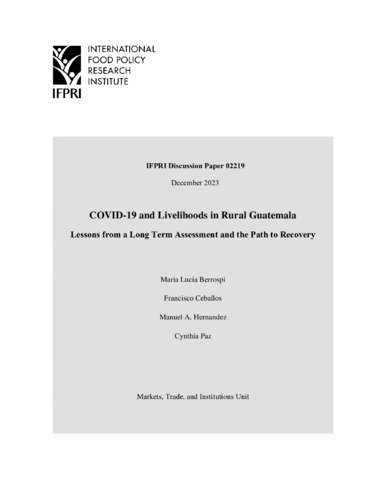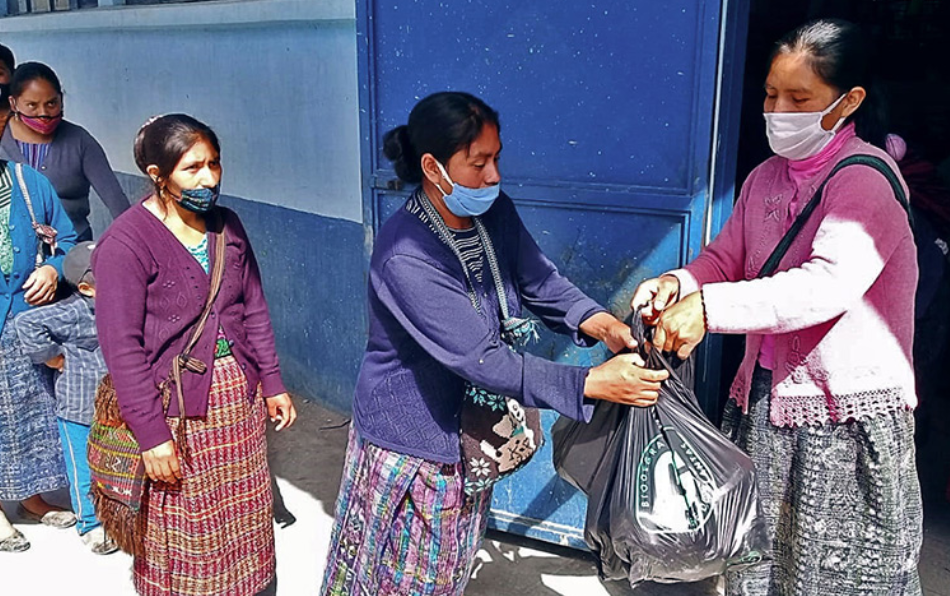COVID-19 and extreme weather: Impacts on food security and migration attitudes in the rural area of Guatemala
This paper examines the continuing effects of COVID-19 and exposure to weather extremes on income, dietary, and migration outcomes in the rural area of Guatemala. We rely on a comprehensive longitudinal survey of 1,612 smallholder farmers collected over three survey rounds in 2019, 2020, and 2021. We find improvements in incomes, food security, dietary diversity, and animal source foods (ASF) consumption in 2021 relative to 2020, but with levels still below pre-pandemic ones in 2019. We also find a substantial increase in the intention to emigrate that was not observed in the onset of the pandemic. In terms of the channels mediating the variations in dietary diversity and migration intentions, income shocks seem to have played a role, in contrast to direct exposure to the virus, local mobility restrictions, and food market disruptions. Importantly, households exposed to ETA and IOTA tropical storms, in addition to COVID-19, were considerably more prone to exhibit larger increases in the prevalence of moderate or severe food insecure episodes and larger decreases in their diet quality and ASF consumption. The study provides novel evidence on vulnerable households’ wellbeing in the aftermath of a global crisis, including the effects of compound shocks.
Authors
Ceballos, Francisco; Hernandez, Manuel A.; Paz, Cynthia
Citation
Ceballos, Francisco; Hernandez, Manuel A.; and Paz, Cynthia. 2024. COVID-19 and extreme weather: Impacts on food security and migration attitudes in the rural area of Guatemala. World Development 173(2024): 106422. https://doi.org/10.1016/j.worlddev.2023.106422
Keywords
Latin America; Covid-19; Food Security; Extreme Weather Events; Households; Income; Diet; Migration; Rural Areas; Shock
Record type
Journal Article








